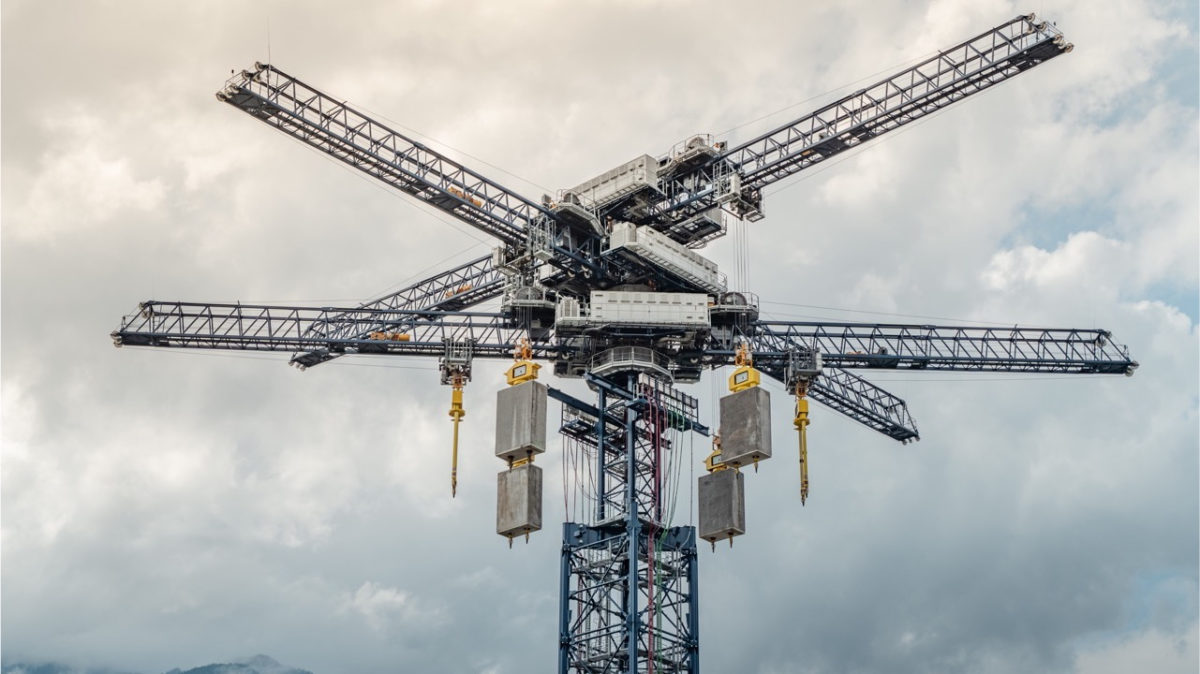Korea Zinc has agreed to invest $50 million in Switzerland-based Energy Vault so it can use its energy storage technology at its Australian refinery. The South Korean smelting giant is the latest major company to back Energy Vault ahead of its listing on the New York Stock Exchange later this quarter.
The new investment upsizes previously announced private investment in public equity funding from $100 million to $150 million, in conjunction with Energy Vault’s agreement to become a publicly traded company through a merger with Novus Capital Corporation II. Its previous funding round included investments from Saudi Aramco Energy Ventures, BHP Ventures, Volta Energy Technologies, and Softbank Vision Fund, among others.
The new strategic partnership supports Korea Zinc’s strategy to decarbonize its refining and smelting operations under Sun Metals, its wholly owned subsidiary in Australia. The companies expect to begin project deployment of Energy Vault’s proprietary energy storage and energy management software technology in mid-2022. The size and cost of the project have not been disclosed.
The investment comes hot on the heels of Korea Zinc’s acquisition of Epuron, a major utility-scale wind and solar energy developers in Australia, with a pipeline of over 9GW. In late December, Ark Energy, an arm of Korea Zinc which runs the company’s decarbonization efforts in Australia, said Epuron's pipeline of projects will be used to help decarbonize its zinc metal processes and to power green hydrogen production.
Energy Vault’s technology is another piece of the puzzle in Korea Zinc’s ambitious plan to make its Sun Metals refinery in Queensland the world’s first refinery to produce green zinc. In November, Sun Metals – the second largest single-site energy consumer in Queensland – vowed to power its entire operations with 100% renewable electricity by 2040, with an interim target of 80% by 2030.
Previously, Sun Metals developed its own 125 MW solar farm, which became operational in 2018, to lower the cost of running its refinery, which was then on the verge of expansion. Today, the solar project provides some 22% of the refinery‘s energy needs. Sun Metals has also announced that it is considering buying wind assets in Queensland that could increase that renewable component to almost 90% of its energy needs.
“Energy Vault’s innovative storage technology and energy management software platform can play a key role in enabling and accelerating our decarbonization strategy as we enhance our ability to power our operations with renewable energy,” said Yun B. Choi, vice chairman of Korea Zinc.
Energy Vault’s EVx storage system is comparable to pumped hydro, using grid-scale renewable energy when supply is abundant to drive motors and raise 30-ton blocks on a six-arm crane tower, rather than water, up to a height. When power needs to be discharged back to the grid, the blocks are lowered, harvesting the kinetic energy.
According to the company, there is zero degradation in the storage capacity of the composite blocks, which can remain in the raised position for unlimited periods of time. Its composite blocks are developed in cooperation with Mexico’s Cemex, using local soil at sites where it builds its storage systems, as well as other materials such as recycled coal ash, waste tailings from mining operations, and decommissioned wind turbine blades.
Energy Vault’s EVx tower features 80% to 85% round-trip efficiency and over 35 years of technical life. It has a scalable modular design up to multiple gigawatt-hours in storage capacity.
The company says its technology can economically serve both higher power/shorter duration applications with ancillary services from two to four hours and can also scale to serve longer-duration requirements from five to 24 hours or more.
This content is protected by copyright and may not be reused. If you want to cooperate with us and would like to reuse some of our content, please contact: editors@pv-magazine.com.




One of my favorites topic from renewable energy resources